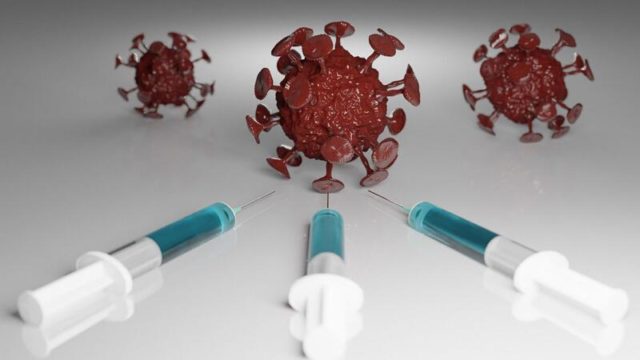The National Treasury said a detailed plan on possible tax hikes to fund the Covid-19 vaccination would be unpacked next month. The government said it planned to vaccinate 67% of the population, or 40 million people, in order to reach herd immunity.
THE GOVERNMENT is proposing a wide range of measures to fund its ambitious Covid-19 vaccination procurement drive, including possible tax hikes and reprioritising government spending.
The National Treasury said that a detailed plan on possible tax hikes to fund the Covid-19 vaccination would be unpacked next month. The government said it planned to vaccinate 67% of the population, or 40 million people, in order to reach herd immunity.
Explaining the vaccine roll-out strategy last week, President Cyril Ramaphosa said that in the first phase the priority would be to vaccinate about 1.2 million front-line health workers. In phase 2, when more vaccines arrived, essential workers such as teachers, police, municipal workers and other front-line personnel would be prioritised. Others in line for the vaccine would be people in institutions like old age homes, shelters and prisons, people over 60 years of age and adults with co-morbidities.
In phase 3, with increased manufacturer supplies, the government aims to vaccinate the remaining adult population of approximately 22.5 million people.
The Health Department has estimated that a maximum amount of R20 billion is needed to vaccinate the entire country.
However, the DA has slammed the mooted plan while the IFP warned that tax hikes should be considered only as a last-ditch resort.
The government viewed the vaccines as a public good and was committed to financing their roll-out, with or without support from the private sector and medical schemes, according to media reports on Monday, which cited Treasury director-general Dondo Mogajane.
“Other options the Treasury is exploring include widening the budget deficit and reprioritising government spending. The pandemic is a good case for emergency funding,” Mogajane was reported as saying.
Contacted for comment, the Treasury said detailed financing measures, including announcements on tax changes, would be made in the Budget Speech next month.
“The DA strongly opposes the tax hikes mooted by Mogajane to pay for the Covid vaccine programme. Higher taxes would be a slap in the face of hard-working South Africans. The proposal is callous and shows an extraordinary insensitivity to the financial suffering of so many families right now,” said the party’s finance spokesperson, Geordin Hill-Lewis.
“(Vaccine funding) would be comfortably affordable for the government were it to reprioritise wasteful programmes and cancel wasteful bailouts. The admission that tax hikes must be considered now is an admission that the government did no forward planning for the vaccine roll-out last year,” Hill-Lewis added.
“On Sunday, Mogajane was quoted as saying that the country would not take the Treasury seriously should they not be able to find money for vaccines but were nevertheless able to find money, yet again, to bail out SAA,” he said.
Hill-Lewis said South Africans already had to bear a high tax burden with very little to show for it in the form of public service delivery.
“In the context of an unprecedented economic crisis, the Treasury’s suggestion of tax hikes is not only morally indefensible, but bad economic policy as well. It is not the hard-working public’s fault that the government has allowed the country’s fiscal problems to spiral out of control.
“Instead of punishing citizens even further, it would be best for the Treasury to find the funds necessary for adequate vaccine procurement through the reprioritisation of funds in terms of the Public Finance Management Act, starting with cancelling the SAA bailout.”
The IFP’s Narend Singh cautioned that the government would first have to exhaust other funding mechanisms before considering any tax increases to fund the vaccination programme.
“It is clear that tax increases are something the government is thinking about. We only hope that any such thoughts do not impose an unnecessary burden on the taxpayer,” Singh said.
“The Treasury should sharpen its pencils first with other departments who are clearly underspending on their mandates. They should redirect unspent funds towards the vaccination procurement. And if tax increases are found to be necessary, then at that stage we would look at that,” he said.








